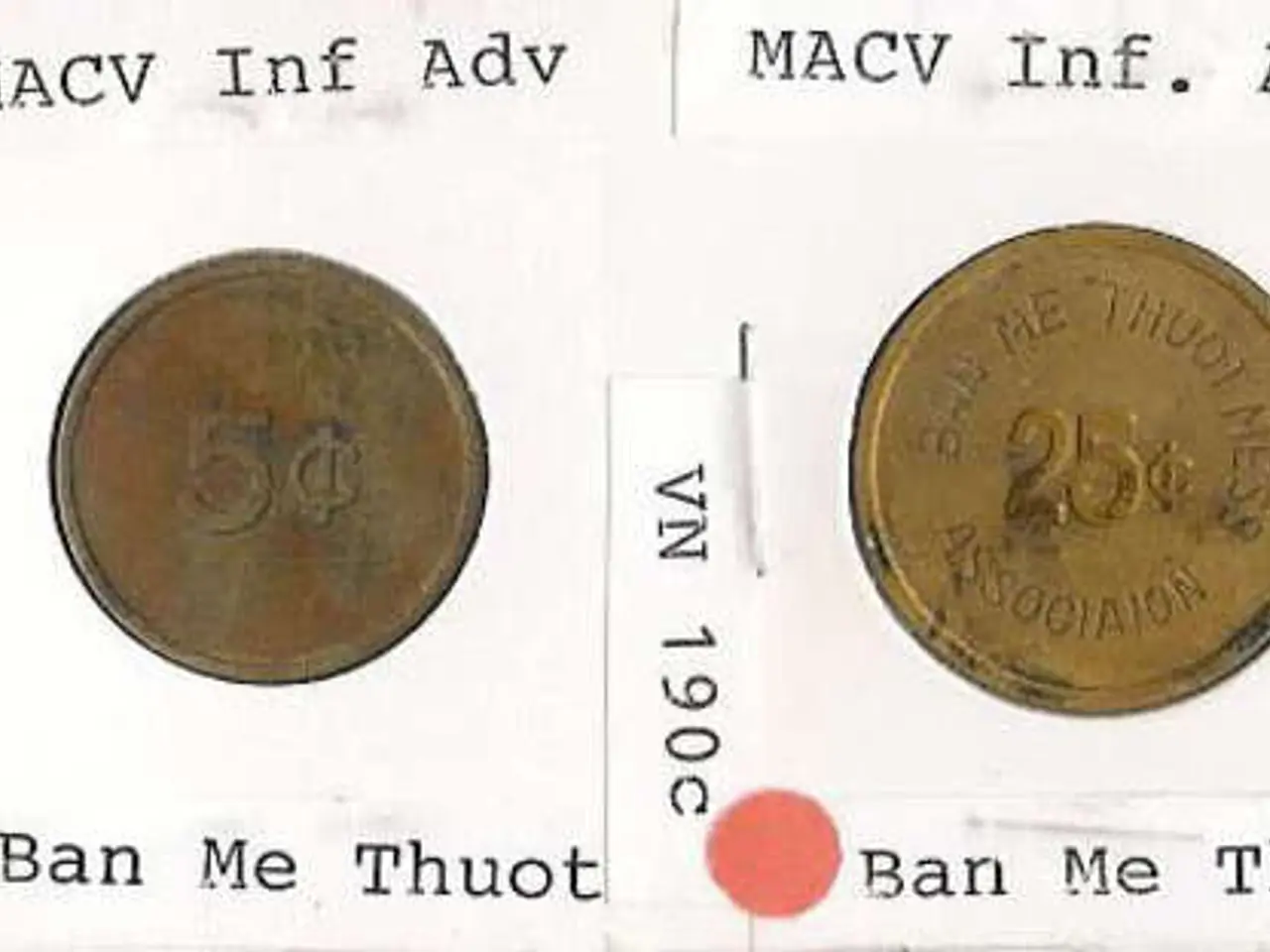"Walmart in Trump's Crosshairs: Clash over Tariffs"
Trump has set his sights on Walmart as his latest focus of interest.
Take a stroll down any Walmart aisle, and you'll quickly realize why it's America's go-to store for budget-friendly shopping. But, even the mighty Walmart is feeling the hit from Trump's tariffs on Chinese goods. The buzz is that prices could surge, and consumers will be the ones feeling the pinch. Melting President Trump's heart? Not exactly.
In a jab at Walmart, Trump criticized the retail titan on his Truth Social platform. Accusing them of using tariffs as a scapegoat for price increases, Trump belittled their earnings, claiming they made billions last year, even more than predicted. Saying, "I'll be watching - and so will your customers!!!" Trump made it clear that he expects Walmart to shoulder the burden, a.k.a., "swallow the tariffs."
Perhaps Trump's reaction was sparked by John David Rainey, Walmart's finance chief's comments to CNBC. Rainey admitted that while progress on tariffs is appreciated, current levels are too high. Walmart is expected to scoop up some of the cost increases, as will their suppliers. But the consumers will still feel the heat. Rainey predicted noticeable price hikes in stores by this May at the latest.
Walmart's reputation as America's cheaper store is at stake. A large chunk of their stock, such as electronics and garb, comes directly or indirectly from China. Rising US tariffs on Chinese imports ramp up the pressure on the supply chain. This political move could even have an impact on Trump, whose voter base is price-conscious.
Under the Radar Threat
Trump's trade policies have put US retailers in a tight spot. If they crank up their in-store prices, they risk evoking both Trump and angry consumers. However, offloading the costs onto suppliers might not be so peachy either. Sources claim that Walmart, along with other US retailers, have been pressuring some suppliers to lower product prices made in China. A few have even been asked to move manufacturing outside of China.
There's also a sneaky threat lurking: Walmart may face legal challenges if they push suppliers to reduce prices, violating contracts or disturbing market order. These consequences were hinted at, the sources said.
CCTV, the Chinese state TV channel, chimed in on social media, stating, "If Walmart insists that Chinese suppliers absorb the price increase, then what Walmart expects will not just be talk."
Sources: ntv.de, jki/dpa
- Donald Trump
- Retail
Extra Info:
The blowback from Donald Trump's trade policies and tariffs on Chinese goods could have profound effects on Walmart and other US retailers:
Pricing Issues
- Price Lifts: Retailers, like Walmart, are forced to hike prices on goods impacted by tariffs to remain profitable. These price increases, even with temporary tariff reductions, are anticipated due to the high costs associated with tariffs[1].
- Consumer Buying Habits: Price hikes could lead to decreased consumer spending as shoppers opt for cheaper alternatives or cut back on overall purchases[1].
Supply Chain Challenges
- Cost Management: Companies, like Seven & i Holdings, the owners of 7-Eleven, plan to cut costs and fine-tune their supply chains to lessen the impact of tariffs[1].
- Logistical Disruptions: Tariffs could cause supply chain disruptions, especially if they jump up again, leading to uncertainty and the possibility of stock shortages[1].
Business Strategy Shifts
- Innovative Supply Chains: Retailers may look to diversify their supply chains by sourcing products from countries with lower or non-existent tariffs in order to reduce their reliance on Chinese goods[1].
- Straightforward Supply Chain Management: Companies emphasize the importance of vigilant cost control and smart supply chain management to thrive in the tariff-riddled environment[1].
Economic Repercussions
- Economic Uncertainty: The tariff's unpredictability can influence retailer confidence and investment decisions, potentially negatively impacting overall economic growth[1].
- Market Competitiveness: Tariffs could provide an unfair advantage for foreign retailers over US competitors who face similar tariffs, leading to market share losses[1].
In summary, the tariffs that Donald Trump's trade policies imposed on Chinese goods create pressing difficulties for US retailers. Demanding creative problem-solving to maintain competitiveness and profitability, the tariffs pose a significant challenge.
- Walmart's employment and community policies may need to adapt due to potential price surges and cost increases resulting from Trump's tariffs on Chinese goods.
- The general news and policy-and-legislation landscape will likely be impacted by the ongoing dispute between Trump and Walmart, as retailers grapple with these trade policies and their repercussions on industry and finance.
- Walmart's business strategy and supply chain management are being squeezed by Trump's tariffs, forcing the retail giant to consider innovative solutions such as diversifying their supply chains to minimize reliance on Chinese goods.
- The ongoing tension between Trump and Walmart could have profound economic effects, with the potential for increased economic uncertainty and potential market share losses for US retailers in comparison to overseas competitors who do not face similar tariffs.








